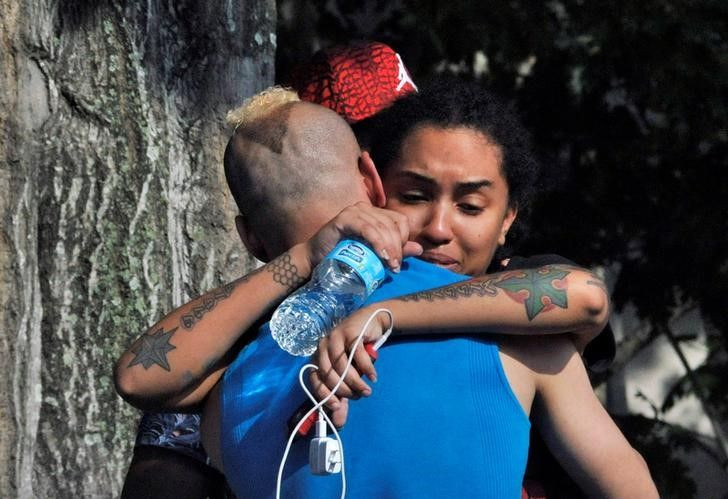LGBT Hate Crimes: Following Orlando Shooting, FBI, Activist Data Shows It’s Dangerous To Be Gay, Transgender In The US

Omar Mateen, 29, entered the Orlando nightclub Pulse — a gay club with some 300 people inside — and opened fired early Sunday with an AR-15 assault rifle, killing at least 50 people. And while the exact motivations of Mateen — who died in a shootout with police — are not yet clear, his father indicated the deadliest mass shooting in U.S. history could have been, in part, sparked by hatred toward LGBT people.
Authorities are investigating the attack but, according to the top Democrat on the House Intelligence Committee, are working under the theory the shooter targeted the club and could have been inspired by the so-called Islamic State group, also known as ISIS. The terrorist group has persecuted people who they suspect are gay. ISIS has executed dozens of people in Syria and Iraq on charges of sodomy, including a brutal execution last year in which they threw two men off the roof of a hotel.
Mateen’s father, Mir Seddique, said Sunday he had recently seen his son react angrily to two men showing affection toward one another.
“We were in downtown Miami, Bayside, people were playing music. And he saw two men kissing each other in front of his wife and kid and he got very angry,” Seddique told NBC News. “They were kissing each other and touching each other and he said, ‘Look at that. In front of my son they are doing that.’ And then we were in the men’s bathroom and men were kissing each other.”
Details are still emerging, but what remains clear is that it can be perilous simply to be an LGBT person in the United States.
Last year brought perhaps the most important victory in history for the LGBT community, as the U.S. Supreme Court legalized same-sex marriage nationwide. But that does not mean nationwide acceptance. Even as details continued to emerge Sunday about the Orlando shooting, a man was arrested in Los Angeles with weapons, ammunition and possible explosive materials. The Los Angeles Times reported the man was heading to a pride parade, although his intentions were unclear and no connection to the Orlando incident had been made.
According to the latest FBI data, which tracked 2014 incidents, 18.6 percent of all hate crimes were motivated by sexual orientation. Gender identity accounted for 1.8 percent of attacks. FBI data from the year prior showed 20.3 percent of hate crimes were motivated by sexual orientation and 0.5 percent were motivated by gender identity.
That data seem to be in line with the latest figures from the National Coalition of Anti-Violence Program (NCAVP), which tracks violence against the LGBT community. While overall violence against the gay community had dropped 32 percent, the data, which dated back to 2014, found violence against transgender people rose 13 percent. The increased violence against the transgender community comes amid a growing controversy over bathroom laws, especially one in North Carolina, that are deemed by critics to be anti-transgender.
And while data indicated overall hate-motivated violence toward the LGBT community was down, hate-motived homicides rose 11 percent in 2014 compared with the year prior, the NCAVP figures found. It’s also widely held that hate crimes are undercounted because groups like the FBI rely on local agencies to categorize the crimes, and some agencies do a better job than others.
It has also proved particularly dangerous to be an LGBT person in Florida, which has a higher rate of hate crimes toward the community than the country at large. The latest data from the state’s attorney general found that 20.6 percent of hate crimes targeted people based on their sexual orientation. In Orlando’s Orange County, half of all reported hate crimes targeted people for sexual orientation.
© Copyright IBTimes 2024. All rights reserved.





















